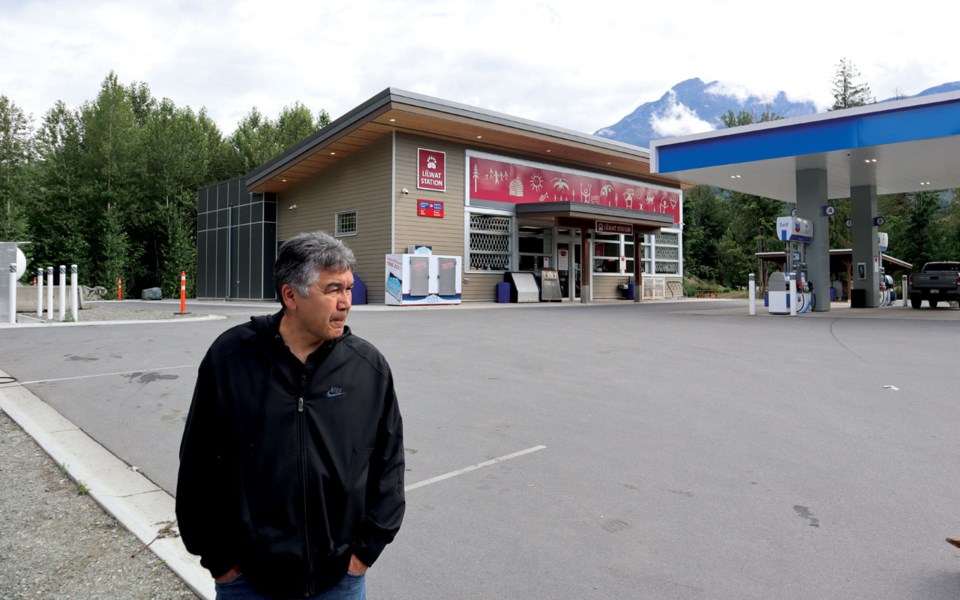After dealing with a COVID-19 cluster in recent weeks, the Lil’wat Nation has cleared all active cases of the virus.
Lil’wat Chief Dean Nelson confirmed the news in a video update to his Facebook page Jan. 15, but cautioned that the community wasn’t in the clear just yet.
“We cannot get careless because we have no active cases at present. We are not out of danger so we need to stay focused on keeping safe practices within the COVID health and safety guidelines to get through this,” he said.
After keeping the novel coronavirus at bay, Mount Currie saw its first confirmed case Dec. 15. In the weeks that followed, the caseload grew to over 40, before levelling off and ultimately dropping to zero.
Going 10 months without a single case, Nelson believes that some community members grew complacent, with a handful reportedly not following self-isolation directives. But soon, thanks in part to the calm, measured influence Nelson showed in his regular video updates, the safety message hit home.
“I was doing daily updates, so I was just trying to get people to realize how serious it was and everything they needed to know, and where they could find the information,” he said.
“I think there’s been a lot of strength shown here within little family groups and helping one another, sharing information and sharing resources.”
Indigenous communities across the province have reported a rise in racism and discrimination since the pandemic began. Leaders of the Cowichan Tribes, the largest single band in B.C., said there was a spike in racist comments, both online and off, towards band members since news emerged of a cluster in the community. The band issued a stay-at-home order until Jan. 22 after reporting 73 COVID cases since Jan. 1.
The backlash was condemned by both residents and political leaders in and around Duncan, where the band is based, and was even addressed by Provincial Health Officer Dr. Bonnie Henry in her Jan. 14 daily presser.
“This type of racism cannot be tolerated and I stand against this with my colleagues to say this must stop on Vancouver Island and elsewhere,” she said. “Racism has no place in our society and in our communities here in British Columbia and we must all take the time to speak up and speak out.”
Lil’wat members have experienced similar discrimination since the pandemic began, Nelson said.
“I’ve seen it in on construction sites … and there were people driving by [seeing] a First Nations person and hollering stuff at them. I’ve heard of it in the grocery stores, even last fall until now. Especially after the outbreak … every Indigenous person you see in the community was pretty much suspect,” he said, noting that the backlash came weeks after the corridor showed such widespread support for Mount Currie after two Lil’wat members, father Peter Oleski and son River Leo, went missing in October while mushroom picking before being found dead a week later.
“Hard times bring out the worst in people—and they bring out the best in good people,” Nelson said.
For all the talk of how unprecedented the pandemic has been, for many Indigenous communities, COVID-19 is just another page in a history marked by devastating health crises and forced isolation.
Between 1780 and 1889, smallpox ravaged First Nations across B.C. and Canada and wiped out entire villages. A measles epidemic compounded the toll on Canada’s First Peoples between 1847 and 1850. And in 1918, the so-called Spanish Flu wreaked further havoc. Add in the forced separation of families and widespread cultural genocide of Canada’s residential schools, and it’s easy to see how isolation was the norm for generations of Indigenous people.
“The removal of our children to residential schools far from home was also a form of plague. It devastated our people’s health and well-being as much as the diseases visited upon us,” wrote Heilstuk Nation member and residential school survivor Hilistis Pauline Waterfall in a piece for The Tyee this spring.
For Nelson, he’s hopeful to counter some of the ignorance with education. While supportive of the wave of reconciliation efforts that has swept the country in recent years, he feels it has to go beyond mere lip service.
‘There’s a lot of gestures—but the understanding is the main thing,” he said.
“This will just keep going if they carry those judgements without understanding the history of the people that are here.”
The Squamish Lil’wat Cultural Centre, Whistler’s First Nations museum, is offering free admission until Jan. 24.




